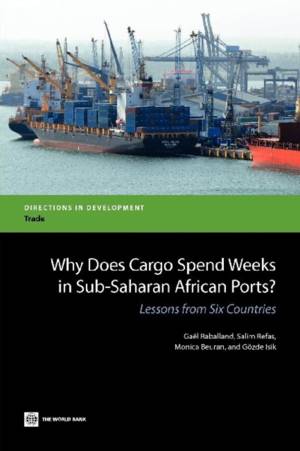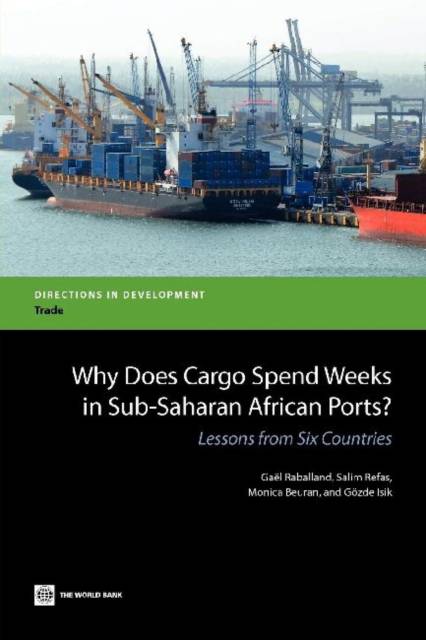
- Retrait gratuit dans votre magasin Club
- 7.000.000 titres dans notre catalogue
- Payer en toute sécurité
- Toujours un magasin près de chez vous
- Retrait gratuit dans votre magasin Club
- 7.000.0000 titres dans notre catalogue
- Payer en toute sécurité
- Toujours un magasin près de chez vous
44,45 €
+ 88 points
Description
Sub-Saharan Africa has a serious infrastructure deficit-estimated at about $48 billion a year-which is impeding the continent's competitiveness and hence its economic growth. How to solve this problem? Some advocate building more infrastructure while others suggest privatizing, or contracting out to the private sector, the management of infrastructure so that the discipline of the market will lead to more and better quality services.This book graphically illustrates the problem in the case of Africa's ports. With the exception of Durban, cargo dwell times-the amount of time cargo spends in the port-average about 20 days in African ports, compared with 3-4 days in most other international ports.
Spécifications
Parties prenantes
- Auteur(s) :
- Editeur:
Contenu
- Nombre de pages :
- 160
- Langue:
- Anglais
- Collection :
Caractéristiques
- EAN:
- 9780821394991
- Date de parution :
- 17-04-12
- Format:
- Livre broché
- Format numérique:
- Trade paperback (VS)
- Dimensions :
- 150 mm x 226 mm
- Poids :
- 258 g

Les avis
Nous publions uniquement les avis qui respectent les conditions requises. Consultez nos conditions pour les avis.






